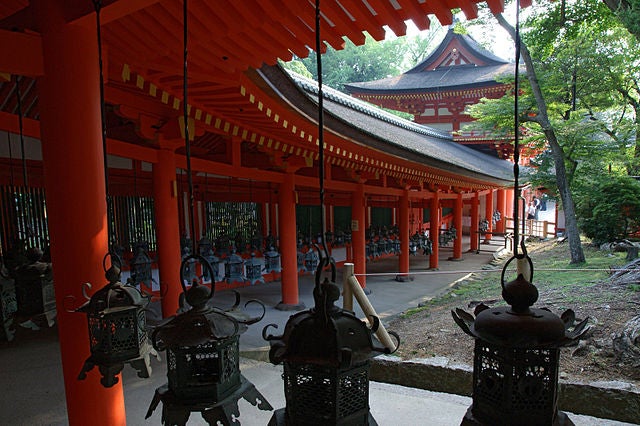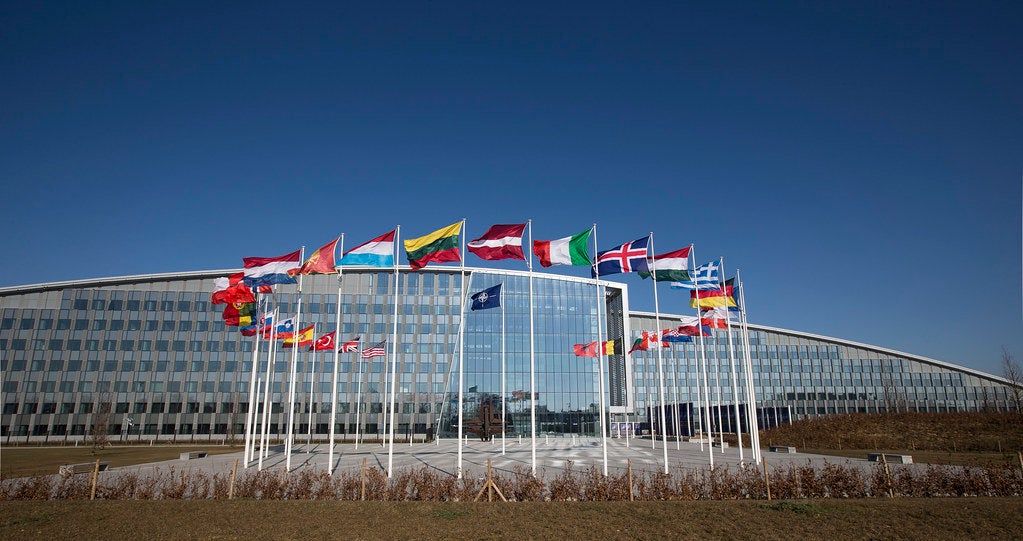Socrates Program: 2024 Summer Seminars
Socrates Summer Seminars
The Socrates Program is excited to host our annual Summer Seminars this July 5th-8th in Aspen, CO. Seminar tuition is $2,500 and includes meals. Limited scholarships are available by application. If you would like to apply for a scholarship, please do so here. We will be hosting five seminars with new and veteran moderators.
The Mad Scientist Among Us: The Tension between Innovation and Destruction (SOLD OUT)
Innovation has been the source of increased wealth, new technologies, and growth at a rapid pace over the past two centuries. Our society either lauds the individuals who drive change as innovators, entrepreneurs, and leaders or denigrates them as madmen out of touch with reality. Often the technologies they invent rely on creative destruction to drive their successes, but this raises the question of when its acceptable or not. Join us for an exploration of case studies of innovators, innovation, and regulation. When does creative destruction cross the line into complete destruction? Can regulation keep guardrails on the creative process or is it always a step behind?
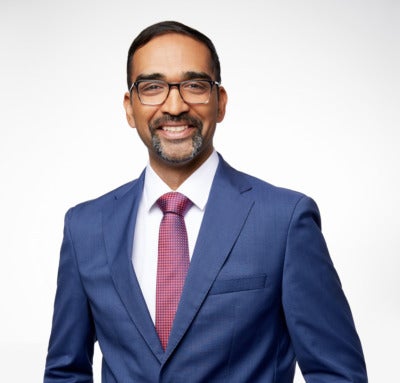 Moderator: Ryan Patel is a globally recognized futurist and leading voice on global business, political economy, and corporate governance. He’s a sought-after TV news contributor, Board Director, and Senior Fellow at the Drucker School of Management, Claremont Graduate University. Ryan also hosts “The Moment with Ryan Patel,” shot at the iconic HP Garage, the birthplace of Silicon Valley.
Moderator: Ryan Patel is a globally recognized futurist and leading voice on global business, political economy, and corporate governance. He’s a sought-after TV news contributor, Board Director, and Senior Fellow at the Drucker School of Management, Claremont Graduate University. Ryan also hosts “The Moment with Ryan Patel,” shot at the iconic HP Garage, the birthplace of Silicon Valley.
Who killed the Chinese economy, how it can be saved, and what is at stake for the United States? (SOLD OUT)
The cause of China’s economic stagnation is highly contested. A confluence of cyclical and structural factors has led to China’s disappointing post-COVID economic recovery. This seminar uses a simple framework of 4Ds – demand, debt, demographics, and decoupling (derisking) – to explore the contested causes of China’s economic stagnation. It invites participants to think through the range of policy options that Chinese leaders have, and the tradeoffs associated with specific policy options. This seminar also explores how China attempts to mitigate the risk of financial sanctions, a form of forced financial decoupling, by developing an alternative financial system and why the ongoing clean energy transition presents China with an opportunity to accelerate the development of such an alternative system. This seminar concludes with a discussion of the variables shaping the U.S.-China economic relationship.
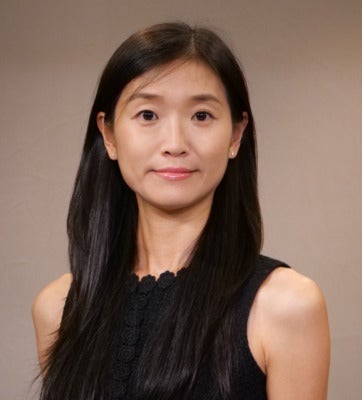 Moderator: Zongyuan Zoe Liu is the Maurice R. Greenberg Fellow for China Studies at the Council on Foreign Relations (CFR). Her work focuses on international finance, sovereign wealth funds, industrial policies, and the geoeconomics of energy transition. Her regional expertise is in East Asia and the Middle East. Dr. Liu is the author of Can BRICS De-dollarize the Global Financial System? (Cambridge University Press) and Sovereign Funds: How the Communist Party of China Finances its Global Ambitions (Harvard University Press, 2023).
Moderator: Zongyuan Zoe Liu is the Maurice R. Greenberg Fellow for China Studies at the Council on Foreign Relations (CFR). Her work focuses on international finance, sovereign wealth funds, industrial policies, and the geoeconomics of energy transition. Her regional expertise is in East Asia and the Middle East. Dr. Liu is the author of Can BRICS De-dollarize the Global Financial System? (Cambridge University Press) and Sovereign Funds: How the Communist Party of China Finances its Global Ambitions (Harvard University Press, 2023).
Peaceful Victory? Ronald Reagan and the End of the Cold War (SOLD OUT)
In President Ronald Reagan’s second term, he partnered with Soviet Leader Mikhail Gorbachev to bring the Cold War to a peaceful end. This seminar will explore Reagan’s Cold War policies, assess debates over what he intended toward the Soviet Union and whether it succeeded, and unpack the fascinating and complex friendship and rivalry between Reagan and Gorbachev. Along the way the seminar will illumine why the Cold War ended the way it did, which remains one of the most important yet still least understood events of the past century – with implications for the foreign policy challenges of today.
This seminar is the second part of a two-part seminar series.
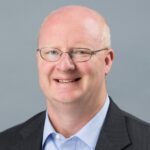 Moderator: William Inboden is Professor and Director of the Alexander Hamilton Center for Classical and Civic Education at the University of Florida, and Peterson Senior Fellow with the Kissinger Center for Global Affairs, Johns Hopkins School of Advanced International Studies. Inboden’s other current roles include Associate with the National Intelligence Council, member of the CIA Historical Advisory Panel, presidentially-appointed Commissioner with the U.S. Commission for the Preservation of America’s Heritage Abroad, and Senior Fellow with the Trinity Forum. His most recent book is The Peacemaker: Ronald Reagan, the Cold War, and the World on the Brink.
Moderator: William Inboden is Professor and Director of the Alexander Hamilton Center for Classical and Civic Education at the University of Florida, and Peterson Senior Fellow with the Kissinger Center for Global Affairs, Johns Hopkins School of Advanced International Studies. Inboden’s other current roles include Associate with the National Intelligence Council, member of the CIA Historical Advisory Panel, presidentially-appointed Commissioner with the U.S. Commission for the Preservation of America’s Heritage Abroad, and Senior Fellow with the Trinity Forum. His most recent book is The Peacemaker: Ronald Reagan, the Cold War, and the World on the Brink.
Competition in the Commons: Oceans and Outer Space (SOLD OUT)
Managing the global commons will be a crucial component shaping the evolution of global order in the coming decade. Global commons such as the oceans and outer space are areas beyond national jurisdiction that belong to everyone, but are the subject of renewed great power competition, national security concerns, and technology-driven commercial activity. Tensions have merged on, in, and under the ocean. Over eighty percent of the international trade in goods moves by sea. Insecurity in the Red Sea impeding traffic to the Suez Canal and tensions in the South China Sea highlight the importance of freedom of navigation. For differing reasons, advocates for marine conservation and fishing interests are concerned about illegal, unreported, and unregulated fishing in the ocean. Again, for divergent reasons, scientists and companies want to discover what lies on the seabed. Dynamic companies want to provide goods and services for the expanding space economy while the United States, China, and the Russian Federation pursue national security and scientific objectives in space. Working with its international partners, the U.S. plans to return to human space flight to and from the Moon. China is planning its own human space flight lunar program. In the past year India and Japan have successfully placed uncrewed landers on the Moon. This seminar will explore the changes and challenges to the governance of the oceans and outer space, especially Earth orbit and the Moon. Humanity owns these areas in common but who benefits?
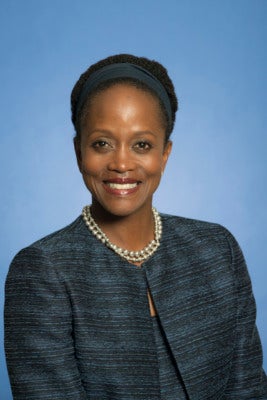 Moderator: Esther D. Brimmer is the James H. Binger senior fellow in global governance at the Council of Foreign Relations (CFR). Her primary areas of interest are governance of the global commons, international organizations, and transatlantic relations. At CFR, she is writing a book about the need for better governance mechanisms to manage expanding human activities in outer space. Brimmer has published numerous articles and edited eight books on transatlantic relations, including Defending the Gains? Transatlantic Responses When Democracy Is Under Threat; Changing Identities, Enduring Values: Is There Still a Transatlantic Community?; and The Strategic Implications of EU Enlargement (with Stefan Fröhlich).
Moderator: Esther D. Brimmer is the James H. Binger senior fellow in global governance at the Council of Foreign Relations (CFR). Her primary areas of interest are governance of the global commons, international organizations, and transatlantic relations. At CFR, she is writing a book about the need for better governance mechanisms to manage expanding human activities in outer space. Brimmer has published numerous articles and edited eight books on transatlantic relations, including Defending the Gains? Transatlantic Responses When Democracy Is Under Threat; Changing Identities, Enduring Values: Is There Still a Transatlantic Community?; and The Strategic Implications of EU Enlargement (with Stefan Fröhlich).
Citizen Action: You’re More Powerful than You Think (SOLD OUT)
We are in an age of epic political turbulence in America. Old hierarchies and institutions are collapsing. From the election of Donald Trump to the upending of the major political parties to the spread of grassroots movements like Black Lives Matter and $15 Now, people across the country and across the political spectrum are reclaiming power. Are you ready for this age of bottom-up citizen power? Do you understand what power truly is, how it flows, who has it, and how you can claim and exercise it?
This seminar is the second part of a two-part seminar series.
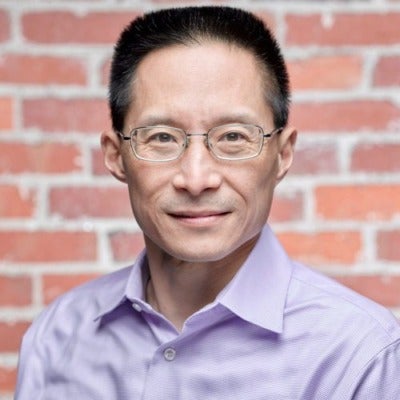 Moderator: Eric Liu is the co-founder and CEO of Citizen University, which works to build a culture of powerful and responsible citizenship in the United States. He also directs the Aspen Institute’s Citizenship & American Identity Program. He is the author of several acclaimed books, including The Accidental Asian: Notes of a Native Speaker; The Gardens of Democracy (co-authored with Nick Hanauer); You’re More Powerful Than You Think: A Citizen’s Guide to Making Change Happen; and his most recent, Become America: Civic Sermons on Love, Responsibility, and Democracy — a New York Times New & Notable Book. He has been selected as an Ashoka Fellow and a member of the American Academy of Arts and Sciences. He is featured on the PBS documentary American Creed and is a frequent contributor to The Atlantic. Liu served as a White House speechwriter for President Bill Clinton and as the President’s deputy domestic policy adviser. He was later appointed by President Obama to serve on the board of the Corporation for National and Community Service. He and his family live in Seattle.
Moderator: Eric Liu is the co-founder and CEO of Citizen University, which works to build a culture of powerful and responsible citizenship in the United States. He also directs the Aspen Institute’s Citizenship & American Identity Program. He is the author of several acclaimed books, including The Accidental Asian: Notes of a Native Speaker; The Gardens of Democracy (co-authored with Nick Hanauer); You’re More Powerful Than You Think: A Citizen’s Guide to Making Change Happen; and his most recent, Become America: Civic Sermons on Love, Responsibility, and Democracy — a New York Times New & Notable Book. He has been selected as an Ashoka Fellow and a member of the American Academy of Arts and Sciences. He is featured on the PBS documentary American Creed and is a frequent contributor to The Atlantic. Liu served as a White House speechwriter for President Bill Clinton and as the President’s deputy domestic policy adviser. He was later appointed by President Obama to serve on the board of the Corporation for National and Community Service. He and his family live in Seattle.
Frequently Asked Questions:
What is a Socrates seminar?
The Socrates Seminar is a roundtable discussion / collaborative weekend-long event for participants from different fields. Participants are asked to contribute their understanding of and reactions to carefully selected readings, with the guidance of moderators who are experts in their sector. This is not a panel discussion, nor is it a tutorial where the experts share their knowledge. The roundtable discussion format is a multilateral debate moderated by the moderator(s). The seminars are held on Aspen Meadows Resort campus.
How many seminars can I participate in?
You will register for one seminar of up to 24 participants for the entire weekend. Meals and programming will be enjoyed with the entire group which includes participants from all five concurrent seminars.
What if my preferred seminar is sold out?
Unfortunately, each seminar is capped at a certain amount and we might not be able to accommodate your request. We urge you to apply as soon as possible but if you would like to discuss the seminars further, please reach out the Socrates Team directly via email and one of our team members will assist you.
What does tuition cover?
Tuition includes seminar attendance and materials and all meals during the program, which begins at 6pm on Friday evening and ends at 1pm on Monday after lunch.
Where can I stay?
We have a room block at the Aspen Meadows Resort, where the seminars are held, with a negotiated room rate of $368 per night for the duration of the seminar. There are also a range of hotels in Aspen that we can suggest for participants looking to not stay on campus.
Are scholarships available?
Scholarships for tuition assistance are available through the Socrates Program. The application can be found here. Please note: Scholarships are awarded on a rolling bases. We encourage you to apply as soon as possible.
Can I do a Socrates seminar on a budget?
We offer partial to full scholarships. Please apply here to be considered. Scholarships generally cover tuition, which includes all meals, but not travel. Flights into Denver, which is a roughly 4 hour drive from Aspen, tend to be more economical. If you choose to fly into Denver and are interested in ridesharing, we will connect you with other participants who are driving. For those looking to roomshare, we will also work to connect you with other participants looking to share the cost of a room.
Can I bring a guest?
If you would like to bring a guest to join you for meals, you are welcome to for $600.00. These both can be purchased as add-ons when you register.
What transportation will be provided at the event?
If you are a guest of the Aspen Meadows Resort, they will take care of your arrival and departure transportation to and from the airport. If you are staying at an alternative location, taxis and a free local bus are available.
The Aspen Meadows offers a complimentary shuttle that runs into Aspen every 30 minutes.
What is the timing of the seminars and programming for the weekend?
To join for the whole experience, you will want to arrive in Aspen by 6pm on Friday and depart after 12pm on Monday. In the summer, we start our seminars with an opening night cocktail hour/dinner and seminars run from 8am-12pm until Monday.
You are welcome to explore and engage with everything Aspen has to offer in the afternoons. We have partnered with Blazing Adventures to offer some special trips to Socrates participants.
What is the dress codes for the seminar?
Although we do not require a specific dress code, most people dress business casual and comfortable in the seminar rooms and bring something a bit more dressy for the evenings. We recommend that you dress for warmth and comfort in both the Winter and Summer. Please wear sturdy shoes that will allow you to walk through snow and/or mud.
